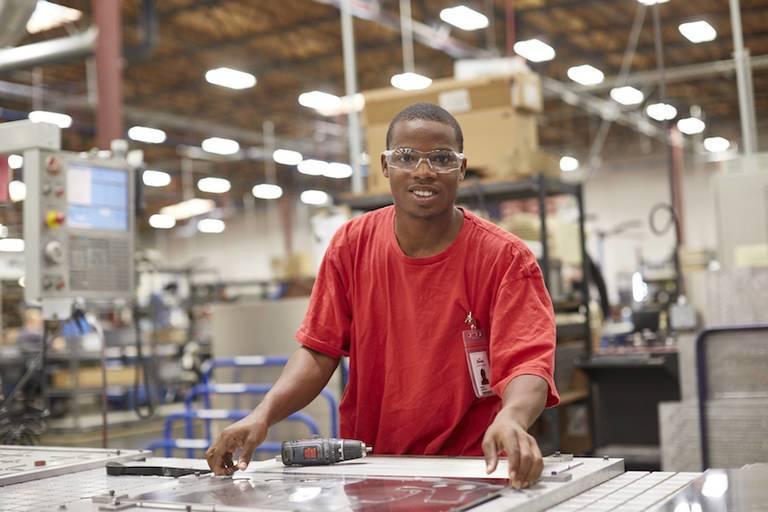
By Carla Javits
Springtime means baseball is back! The new baseball season got me thinking about farm teams, where athletes get to hone their game in a lower-risk environment that is supportive but challenging. It’s a brilliant system and, as a plus, a great business model for training players to move up to the next level. Another area where a farm-team type approach has enormous potential is workforce development.
Prime-time employment, where your behavior and actions are scrutinized every day, is a challenging experience for even the best-prepared among us. And even then, most people benefit from a supportive work environment that allows them to learn and adjust to the demands of the workplace.
In fact, many of us who have had success at work benefited from just such an environment. If your parents or extended family owned a business like a restaurant or a store, chances are you started off in a job there with some up-close-and-personal supervision. Maybe you babysat or cut the lawns for the neighbors. They got mad when you were late or didn’t show up, but it was low risk; they probably gave you another chance. Many of us were lucky enough to know people along the way who took us under their wings and helped us navigate the early years of work.
For those who did not have that good luck, there was no such “farm team” training ground: no supportive relatives, no forgiving work environment, no friendly mentors. And even more challenging, many also had to develop their abilities to navigate within a crucible of extreme and ongoing stress, even violence and trauma, in a country where a college degree is the default hurdle for many jobs that offer upward mobility and where wages at the low end of the market have barely budged in years.
And despite what many believe to be an egalitarian market, a wide variety of research proves that’s not case. A widely quoted field experiment conducted in the low-wage labor market of New York City found that even when white, black and Latino job applicants with similar interpersonal skills were given the same exact resumes, after applying for hundreds of entry-level jobs, black applicants were half as likely as equally qualified whites to receive a callback or job offer. In fact, black and Latino applicants with clean backgrounds fared no better than white applicants just released from prison.
American businesses are increasingly on record with their frustrations about finding well-prepared workers. They’re leaving positions unfilled or tolerating excessively high levels of turnover. What they’re not doing is connecting with well-prepared frontline workers routinely or making major investments in training and workforce preparation.
How do we get out of this vicious cycle? I propose a new set of workforce development “farm teams.”
A growing national cohort of social enterprises could be a ready-made starting point. These mission-oriented businesses operate with a double bottom line. They earn revenue by selling quality products and services, while providing jobs and training in a supportive work environment to people who are overcoming significant challenges, and need coaching, support and a lower-risk environment to prepare for work in the big leagues.
Social enterprises, like farm teams, are an entry point, enlarging the labor pool and preparing people to work. Specialty training — like batting or catching camps — can be offered by community colleges or training providers.
Some community colleges report that people are flocking to oversubscribed programs -- nursing, for example -- that lead to real jobs.
When players move from farm teams to the big leagues, there is a handoff from one coach to another, one set of teammates to another. Support continues, but it’s different in nature once you’re at that next level. Similarly, social enterprises partner with employers, making sure attention is paid and support provided to newly hired employees at any level of the organizational hierarchy, fostering productivity and job retention.
Businesses interested in creating a farm team system should be in touch with the social enterprises, community colleges and community-based job training programs in their locales. Investing the time to develop partnerships, and finding useful ways to invest in the growth and development of these entities, is essential for business and government.
Many people who elected President Donald Trump were clearly focused on economic mobility and jobs. He has called for a patriotic, national commitment to the development of jobs and greater opportunity. On both sides of the aisle, many Americans are eager to find long-term solutions that provide employment and hope for millions in need.
A national farm-team system for workforce development will ensure that those who are sitting on the sidelines or bouncing in and out of low-wage jobs have a pathway into the workforce and better jobs -- and are ready to add the value employers seek as they grow their companies and consider investing in more jobs and higher wage levels.
Image courtesy of REDF
Carla Javits is president & CEO of REDF. REDF invests in the growth and effectiveness of social enterprises―double bottom-line businesses dedicated to helping people who otherwise would be shut out of the workforce get jobs, keep jobs and build better lives. Since 1997, REDF has provided funding and specialized advisory services to 100 social enterprises around the country that have employed 14,500 people, with a significant rate of return to society—$2.23 in benefits for every $1 spent. For more information, visit www.redf.org and follow on Twitter at @REDFworks
TriplePundit has published articles from over 1000 contributors. If you'd like to be a guest author, please get in touch!














